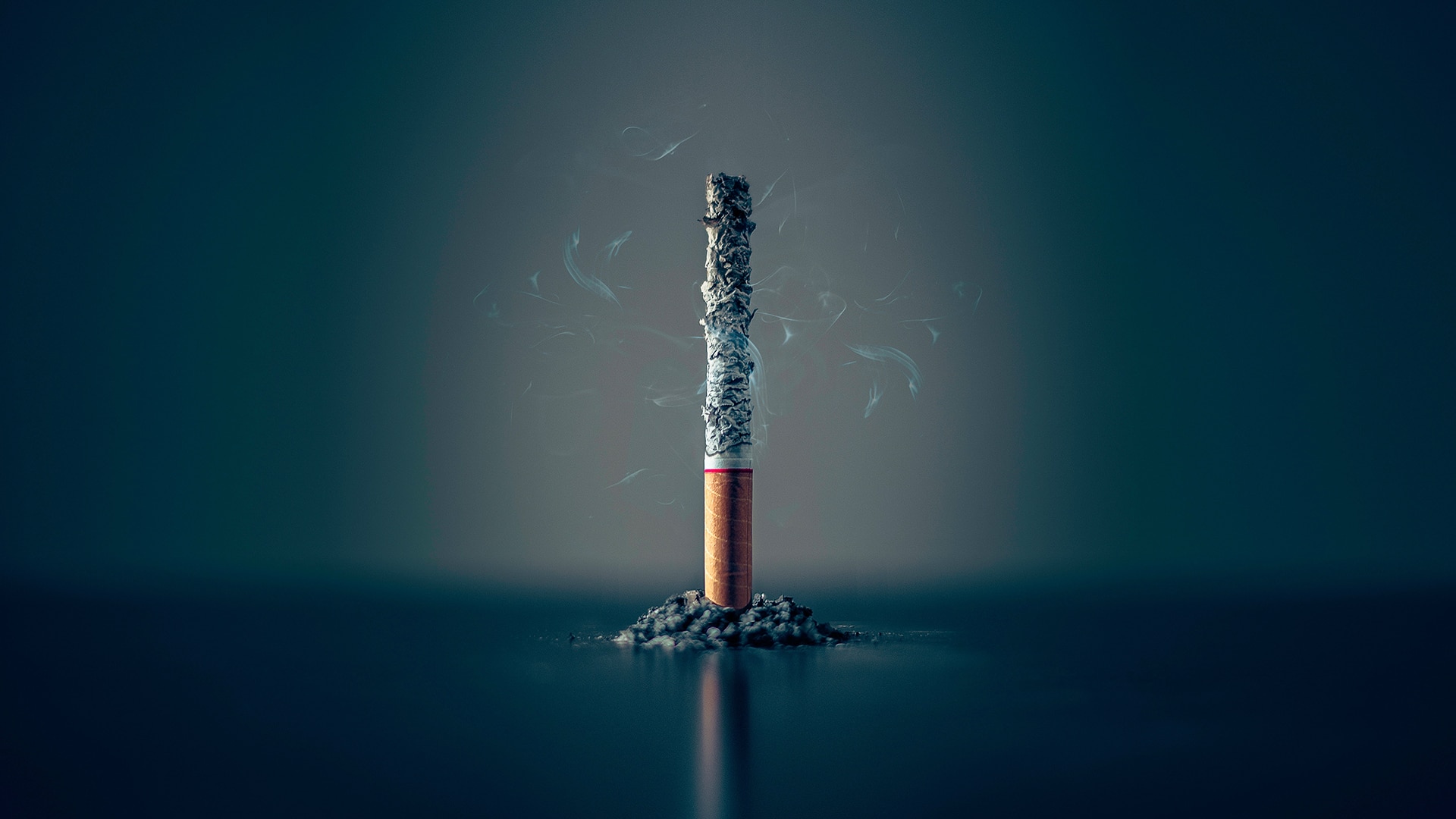
How Does Smoking Affect Your Teeth?
Smoking damages nearly every single part of your body, including your teeth.



Smoking damages nearly every single part of your body, including your teeth.


Smoking damages nearly every single part of your body, including your teeth. If you’re a longterm smoker, you have a much higher chance of losing your natural teeth at a younger age. Why? As strange as it sounds, it has to do with saliva.
If the human mouth didn’t have saliva, we’d be in trouble. Saliva is the body’s natural way of halting a massive build-up of dangerous bacteria in the mouth (bacteria that leads to tooth decay and periodontal disease). Brushing and flossing are the best ways to keep your mouth bacteria-free but saliva is so efficient at keeping things clean because it’s working all the time — not just in the morning and right before bed. Drinking lots of water supplements your saliva, making it even more potent against bacteria.
The chemicals in tobacco products slow down the natural cycle of saliva regeneration. Less saliva equals more tartar. As the tartar builds up, causing periodontal disease, the gums recede, revealing more and more of the tooth’s root. Eventually, the bond between the tooth and the gums will become so weak that the tooth will fall out. This happens to smokers and non-smokers alike but the chances of getting periodontal disease are much higher if you use tobacco products.
The deadly chemicals in cigarettes make them menacingly effective at delaying natural healing in the mouth. If you’re a smoker and you consider yourself a “slow healer” when it comes to oral surgery, you need to realize the connection between the two. Smoking and gum tissue don’t get along well. Cigarettes cause decreased blood flow in the mouth and a higher risk of infection — both of which can spell danger for oral surgeries. Chances are, your oral surgeon will try to encourage you to give up smoking prior to the procedure. It can wreck that much havoc post-surgery.
With dental implants, smoking can cause the dental implant to fail completely, wasting both the surgeon’s time and the patient’s money. The problem is, a lot of people who get dental implants are getting them because they lost their teeth from smoking. We regularly see patients who choose to allow their dental implant(s) to fail rather than give up smoking. It’s an incredibly difficult habit to break but, if you care about your dental health (and your overall health), you have to do it.
From a cosmetic dentistry standpoint, smoking is far from forgiving. Like the tips of their fingers, smokers’ teeth frequently become a sickly yellow color. The yellow stains from smoking sink deep into the enamel, making them impossible to remove with at-home whitening methods. Professional whitening has varying levels of success when trying to remove smoking stains.
We all know smoking leads to cancer but did you know that, according to WebMD, about 90 percent of people diagnosed with cancer of the mouth, throat, or lips used tobacco? The same study showed that smokers are six times more likely than nonsmokers to develop oral cancers. While there are ways to treat oral cancer, it’s still incredibly dangerous and deadly. The best way to prevent it is to give up any and all forms of tobacco.
Save your teeth and save your health by quitting smoking. You can find some useful resources from the CDC here.